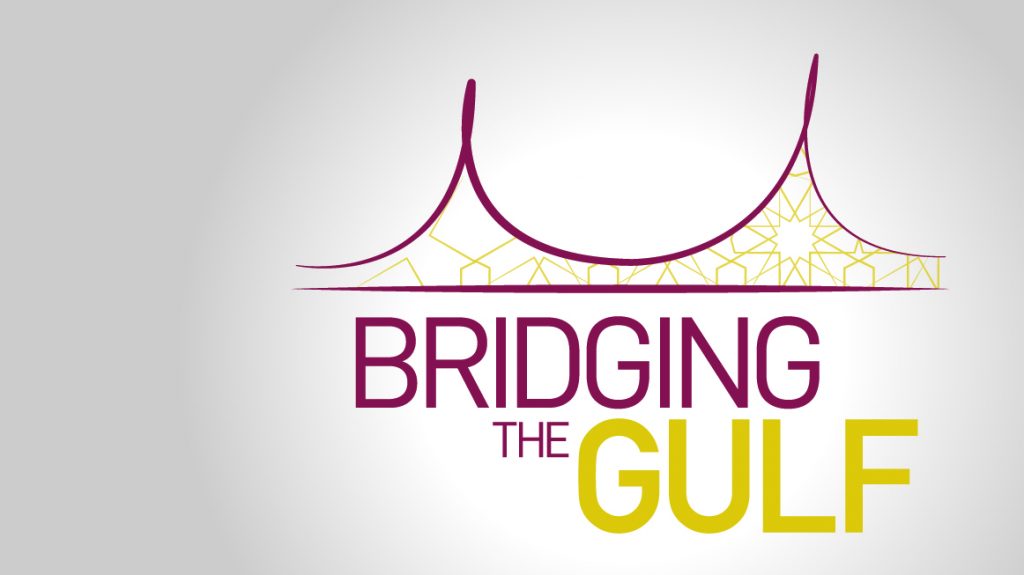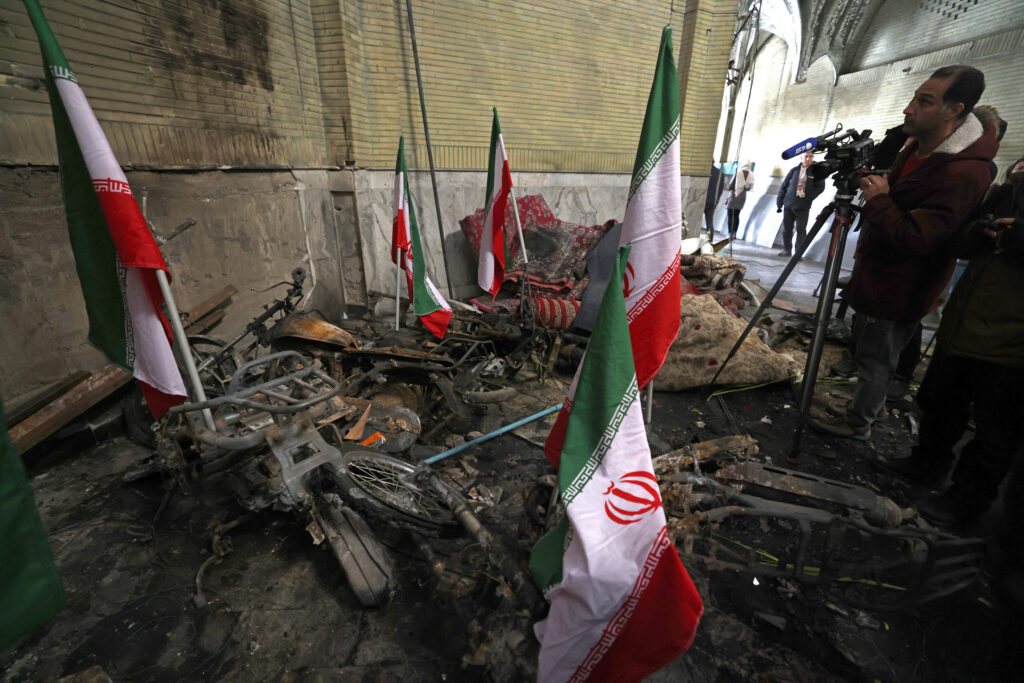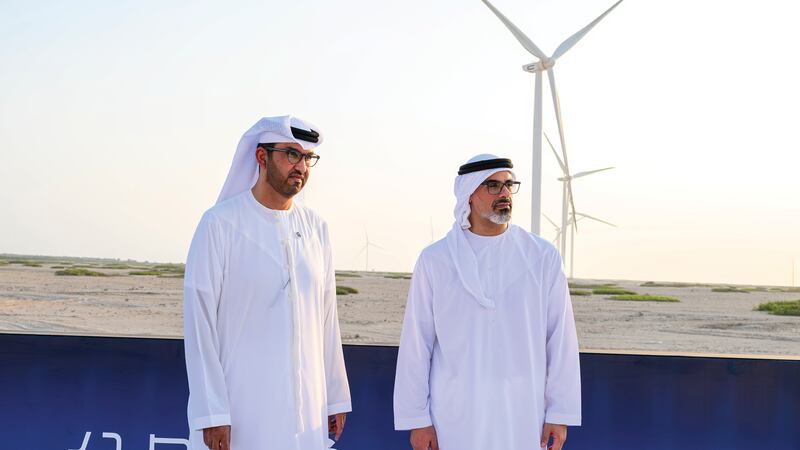The bulldozers are here. This time, they are here for Jebel Ali – the region’s first major shipping hub and dry dock located in Dubai. Like many other built relics in the Gulf, including the coral stone homes of Dubai’s rulers along its famous saltwater creek, these buildings were razed to make way for more modern structures. This is the story of the meteoric rise of Gulf cities – most of them were once sleepy pearling towns but they now embrace soaring skyscrapers and megamalls. Beyond the superlatives (the “tallest”, the “biggest”, the “most expensive” etc.), sociocultural anthropologist Sulayman Khalaf writes that Gulf architecture is not created in isolation. Rather, constituents of urbanisation, Arab/Muslim identity and the oil political economy all form a dynamic interplay in city planning. How then can we describe Gulf architecture? Consumerist? Modernist? Where does the notion of heritage fit in? Does the import of Western technical knowledge erase local khaleeji urbanism?
MEI (NUS) will host the co-editors of the volume, Urban Modernity in the Contemporary Gulf, to examine the Gulf’s engagement with architectural modernism over the decades. This discussion also aims to address the nature of the relationship between the built environment and Gulf societies.
Speakers: Mr Sultan Sooud Al-Qassemi, Harvard Kennedy School, Dr Roberto Fabbri, Zayed University, Ms Suha Hasan, KTH Royal Institute of Technology, Ms Lina Ahmad, Zayed University and Mr Marco Sosa, Zayed University
Mr Sultan S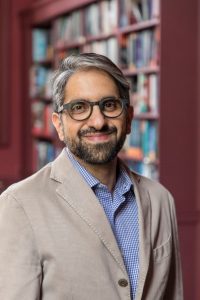 ooud Al-Qassemi is the Kuwait Foundation Visiting Scholar, Middle East Initiative, Fall 2021 at the Harvard Kennedy School. He is also the co-editor of two recently released volumes, Urban Modernity in the Contemporary Gulf (Routledge, 2021) and Building Sharjah (Birkhauser, 2021). Mr Al-Qassemi is also founder of the Barjeel Art Foundation in Sharjah, UAE. He was a MIT Media Lab Director’s Fellow from 2014 to 2016, a practitioner-in-residence at the Hagop Kevorkian Center for Near Eastern Studies at New York University in Spring 2017 and a Yale Greenberg World Fellow in 2018. He was a visiting instructor at the Council of Middle East Studies at Yale University, the Center of Contemporary Arab Studies at Georgetown University, the American University of Paris, the Islamic Civilisation and Societies programme at Boston College and the School of Public Affairs at Sciences Po, Paris.
ooud Al-Qassemi is the Kuwait Foundation Visiting Scholar, Middle East Initiative, Fall 2021 at the Harvard Kennedy School. He is also the co-editor of two recently released volumes, Urban Modernity in the Contemporary Gulf (Routledge, 2021) and Building Sharjah (Birkhauser, 2021). Mr Al-Qassemi is also founder of the Barjeel Art Foundation in Sharjah, UAE. He was a MIT Media Lab Director’s Fellow from 2014 to 2016, a practitioner-in-residence at the Hagop Kevorkian Center for Near Eastern Studies at New York University in Spring 2017 and a Yale Greenberg World Fellow in 2018. He was a visiting instructor at the Council of Middle East Studies at Yale University, the Center of Contemporary Arab Studies at Georgetown University, the American University of Paris, the Islamic Civilisation and Societies programme at Boston College and the School of Public Affairs at Sciences Po, Paris.
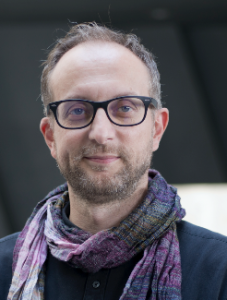 Dr Roberto Fabbri is an architect, researcher and associate professor at Zayed University in the UAE. His professional and academic interests focus on narrative spaces such as heritage buildings and museums, preferably in the Global South. As an architect consultant with the United Nations Development Programme, Dr Fabbri participated in the rehabilitation of the Kuwait National Museum and completed the transformation of the American Missionary Hospital of Kuwait into a cultural hub. In the same period, he was also lead exhibition designer for Dar al-Athar al-Islamiyyah/Al Sabah collection. From 2016 to 2021, he taught at the University of Monterrey in Mexico and prior to that, was teaching at the University of Bologna in Italy and the American University of Kuwait. He regularly participates in international conferences – recently at Yale University, University of Cambridge, King’s College London and the Institut national d’histoire de l’art in Paris. He has published extensively in academic journals, such as Domus; Faces, Journal d’architecture; and the International Journal of Islamic Architecture. He co-edited Urban Modernity in the Contemporary Gulf (Routledge, 2021) and co-authored the double volume Modern Architecture Kuwait 1949-89 (Niggli 2016, 2017). He published two books on the architectural works of Max Bill (Mondadori 2011, inFolio 2017) as well.
Dr Roberto Fabbri is an architect, researcher and associate professor at Zayed University in the UAE. His professional and academic interests focus on narrative spaces such as heritage buildings and museums, preferably in the Global South. As an architect consultant with the United Nations Development Programme, Dr Fabbri participated in the rehabilitation of the Kuwait National Museum and completed the transformation of the American Missionary Hospital of Kuwait into a cultural hub. In the same period, he was also lead exhibition designer for Dar al-Athar al-Islamiyyah/Al Sabah collection. From 2016 to 2021, he taught at the University of Monterrey in Mexico and prior to that, was teaching at the University of Bologna in Italy and the American University of Kuwait. He regularly participates in international conferences – recently at Yale University, University of Cambridge, King’s College London and the Institut national d’histoire de l’art in Paris. He has published extensively in academic journals, such as Domus; Faces, Journal d’architecture; and the International Journal of Islamic Architecture. He co-edited Urban Modernity in the Contemporary Gulf (Routledge, 2021) and co-authored the double volume Modern Architecture Kuwait 1949-89 (Niggli 2016, 2017). He published two books on the architectural works of Max Bill (Mondadori 2011, inFolio 2017) as well.
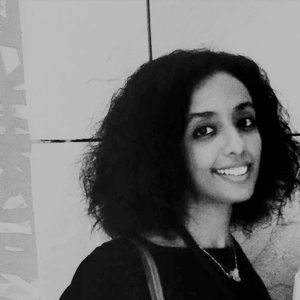 Miss Suha Hasan has worked as an architect on various projects, ranging from private residences to large developments in Bahrain, Dubai and Khartoum and is a lecturer at the University of Bahrain. As a student, she worked as a journalist for a brief period, covering the social beat. Today, her time is divided between KTH Royal Institute of Technology, Stockholm, where she is doing her PhD and Bahrain, where she engages in experimental participatory urban research via public art exhibitions, talks and workshops through Mawane. Miss Suha’s PhD research investigates the absent landscape of architecture in Bahrain and this stems from her interest in post and pre-colonial studies of architecture and urbanism. On one hand, a broad interest in the global history of spatial cultures and their production through transnational and transcultural processes and on the other, specifically those across the Middle East, Africa and South Asia. She is also interested in cross-cultural artistic practices across the region, including its history and legacy and has recently joined the United Nations Development Programme as a Consultant and the Architectural Association as a Visiting School Director.
Miss Suha Hasan has worked as an architect on various projects, ranging from private residences to large developments in Bahrain, Dubai and Khartoum and is a lecturer at the University of Bahrain. As a student, she worked as a journalist for a brief period, covering the social beat. Today, her time is divided between KTH Royal Institute of Technology, Stockholm, where she is doing her PhD and Bahrain, where she engages in experimental participatory urban research via public art exhibitions, talks and workshops through Mawane. Miss Suha’s PhD research investigates the absent landscape of architecture in Bahrain and this stems from her interest in post and pre-colonial studies of architecture and urbanism. On one hand, a broad interest in the global history of spatial cultures and their production through transnational and transcultural processes and on the other, specifically those across the Middle East, Africa and South Asia. She is also interested in cross-cultural artistic practices across the region, including its history and legacy and has recently joined the United Nations Development Programme as a Consultant and the Architectural Association as a Visiting School Director.
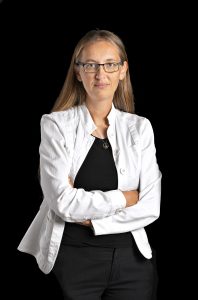 Miss Lina Ahmad holds a Masters from the Architectural Association School of Architecture, London and has more than 10 years of professional experience working across different sectors and project stages in the UAE. Her design work ranges from proposing alternate schemes to detailing and executing architectural packages, participating in various projects’ execution and site supervisions. Ms Ahmad works at Zayed University, Abu Dhabi as an Associate Professor and is also the Chair of Design. Her work, that has been published and presented at conferences worldwide as well as awarded and exhibited, includes contributions towards the UAE’s national pavilion at the 14th Venice Architecture Biennale. Ms Ahmad who is passionate about modern heritage, is an advocate of digital fabrication technology and its impact on regional higher education and the UAE’s creative industry.
Miss Lina Ahmad holds a Masters from the Architectural Association School of Architecture, London and has more than 10 years of professional experience working across different sectors and project stages in the UAE. Her design work ranges from proposing alternate schemes to detailing and executing architectural packages, participating in various projects’ execution and site supervisions. Ms Ahmad works at Zayed University, Abu Dhabi as an Associate Professor and is also the Chair of Design. Her work, that has been published and presented at conferences worldwide as well as awarded and exhibited, includes contributions towards the UAE’s national pavilion at the 14th Venice Architecture Biennale. Ms Ahmad who is passionate about modern heritage, is an advocate of digital fabrication technology and its impact on regional higher education and the UAE’s creative industry.
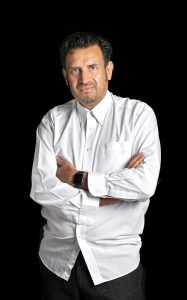 Mr Marco Sosa is an Architect, Associate Professor of Interior Design and the Assistant Dean of Research at Zayed University, Abu Dhabi. Mr Sosa holds a BA (Hons), postgraduate diploma and master’s in architecture and has over 10 years of experience in the industry. In 2012, he published a book, Al Bidiya Mosque, A Visual Essay, about the oldest functional mosque in the UAE. In 2014, Mr Sosa was appointed as the head of design in the curatorial team for the UAE’s first national pavilion at the 14th Venice Architecture Biennale, which chartered the impact of modernist architecture in the Emirates. He has published various academic papers and presented at conferences around the world on architectural photography and his passionate interests, modern heritage in the UAE and the development of design education in the country.
Mr Marco Sosa is an Architect, Associate Professor of Interior Design and the Assistant Dean of Research at Zayed University, Abu Dhabi. Mr Sosa holds a BA (Hons), postgraduate diploma and master’s in architecture and has over 10 years of experience in the industry. In 2012, he published a book, Al Bidiya Mosque, A Visual Essay, about the oldest functional mosque in the UAE. In 2014, Mr Sosa was appointed as the head of design in the curatorial team for the UAE’s first national pavilion at the 14th Venice Architecture Biennale, which chartered the impact of modernist architecture in the Emirates. He has published various academic papers and presented at conferences around the world on architectural photography and his passionate interests, modern heritage in the UAE and the development of design education in the country.
Listen to the full event here:
Watch the full event here:

